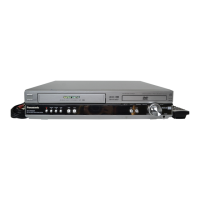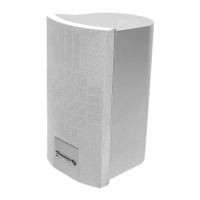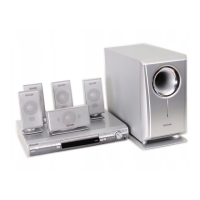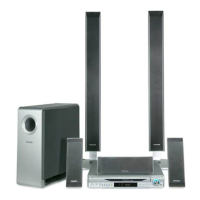4.1.2. Leakage Current Hot Check (See Figure 1)
1. Plug the AC cord directly into the AC outlet. Do not use an
isolation transformer for this check.
2. Connect a 1.5k , 10 watts resistor, in parallel with a 0.15 F
capacitor, between each exposed metallic part on the set and a
good earth ground such as a water pipe, as shown in Figure 1.
3. Use an AC voltmeter, with 1000 ohms/volt or more sensitivity, to
measure the potential across the resistor.
4. Check each exposed metallic part, and measure the voltage at
each point.
5. Reverse the AC plug in the AC outlet and repeat each of the above
measurements.
6. The potential at any point should not exceed 0.75 volts RMS. A
leakage current tester (Simpson Model 229 or equivalent) may be
used to make the hot checks, leakage current must not exceed 1/2
milliamp. In case a measurement is out of the limits specified,
there is a possibility of a shock hazard, and the equipment should
be repaired and rechecked before it is returned to the customer.
5. Handling the Lead-free Solder
5.1. About lead free solder (PbF)
Distinction of PbF P.C.B.:
P.C.B.s (manufactured) using lead free solder will have a PbF stamp on the P.C.B.
Caution:
- Pb free solder has a higher melting point than standard solder;
9

